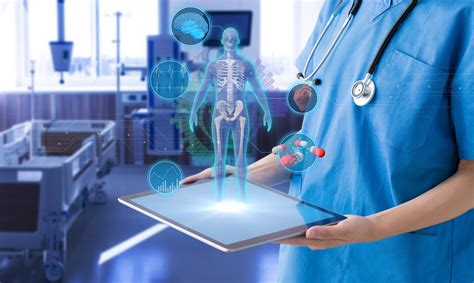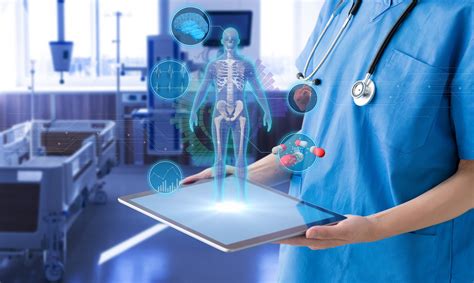

Discover the latest healthcare news and trends. Stay informed on medical breakthroughs and advancements in the industry.
The healthcare industry is one of the most crucial sectors in our society, providing essential services to people in need. From routine check-ups to life-saving surgeries, healthcare providers play a vital role in maintaining the well-being of individuals and communities. However, with the increasing demand for healthcare services and the rise of new technologies, the industry is facing unprecedented challenges that require innovative solutions. In this article, we will explore the current state of healthcare provision and examine the trends and developments that are shaping its future. So, buckle up and get ready to dive into the fascinating world of healthcare.
Daftar Isi
The Importance of Healthcare
Healthcare is a fundamental human right that should be accessible and affordable for everyone. It is the provision of medical services to individuals or communities to maintain or improve health through diagnosis, treatment, prevention, or rehabilitation of illnesses and injuries. A healthy population is essential for economic growth, social development, and overall well-being.
The Healthcare System
Public and Private Healthcare
The healthcare system can be classified into two categories: public and private healthcare. Public healthcare is funded and administered by the government, while private healthcare is paid for by individuals or insurance companies. Both systems have their advantages and disadvantages, but they work together to provide healthcare services to the public.
Primary and Secondary Care
The healthcare system is also divided into primary and secondary care. Primary care is the first point of contact for patients seeking medical attention, such as general practitioners, nurses, and pharmacists. Secondary care involves specialized medical services provided by hospitals, clinics, and specialists.
Challenges in Healthcare
Access to Healthcare
Access to healthcare is a significant challenge, especially in developing countries. Lack of infrastructure, inadequate funding, and shortage of healthcare professionals make it difficult for people to access healthcare services. This results in preventable deaths and illness.
Cost of Healthcare
Healthcare costs are rising globally, making it unaffordable for many people. The cost of healthcare includes consultation fees, medication, surgery, and hospitalization. Many people cannot afford these costs, which result in them neglecting their health and suffering from preventable diseases.
Quality of Healthcare
The quality of healthcare varies greatly between countries, regions, and healthcare providers. Poor quality healthcare can result in misdiagnosis, mistreatment, and even death. It is essential to ensure that healthcare providers follow best practices and standards to provide high-quality healthcare services.
Technology in Healthcare
Medical Equipment and Devices
Technology has revolutionized the healthcare industry, providing advanced medical equipment and devices that improve the accuracy of diagnosis and treatment. Medical devices such as MRI machines, CT scans, and ultrasound machines have revolutionized medical imaging, making it easier to diagnose medical conditions accurately.
Electronic Health Records
Electronic health records (EHRs) are digital versions of patient records that contain medical history, diagnosis, treatment, and medication information. EHRs improve the efficiency and accuracy of healthcare services while reducing administrative costs and errors.
Healthcare and COVID-19
The Impact of COVID-19 on Healthcare
The COVID-19 pandemic has put immense pressure on healthcare systems globally. The high number of infections and hospitalizations have overwhelmed healthcare providers, resulting in shortages of medical equipment, supplies, and personnel. The pandemic has highlighted the importance of healthcare systems and the need for investment in healthcare infrastructure.
The Importance of Vaccinations
Vaccinations play a critical role in preventing infectious diseases and reducing the burden on healthcare systems. The development and distribution of COVID-19 vaccines have been a significant achievement in the fight against the pandemic. It is essential to ensure that vaccines are accessible and affordable to everyone to achieve herd immunity and end the pandemic.
The Future of Healthcare
Telemedicine
Telemedicine is the use of technology to provide remote healthcare services, such as video consultations, remote monitoring, and digital prescriptions. Telemedicine has the potential to improve access to healthcare services, especially in rural and remote areas, and reduce healthcare costs.
Artificial Intelligence
Artificial intelligence (AI) has the potential to transform healthcare by improving the accuracy of diagnosis, developing personalized treatment plans, and predicting disease outbreaks. AI can also automate administrative tasks, reducing the burden on healthcare providers and improving efficiency.
Conclusion
Healthcare is a critical component of social and economic development. It is essential to ensure that healthcare services are accessible, affordable, and of high quality. The healthcare system faces several challenges, including access, cost, and quality. Technology has the potential to transform healthcare, providing advanced medical equipment, digital health records, telemedicine, and artificial intelligence. The COVID-19 pandemic has highlighted the importance of healthcare systems and the need for investment in healthcare infrastructure.
Healthcare disparities and access to healthcare have become a growing issue in the United States. While there have been efforts to expand access to healthcare through programs such as Medicaid, recent cuts to the program have had a significant impact on vulnerable populations. The opioid epidemic continues to ravage communities across the country, with many struggling to access treatment and support. Rapidly rising healthcare costs have left many Americans struggling to afford medical treatment, leading to difficult decisions about their health and well-being. Mental health treatment remains a challenge, with a struggle for parity with physical health care. The debate over drug pricing and the rising cost of prescription medications has also been a hot topic in recent years. The impact of the Affordable Care Act and potential changes to healthcare policy in the future continue to be a source of discussion and concern. Rural healthcare is another area where disparities in healthcare access and quality remain a pressing issue. Advances in medical technology have improved patient outcomes, but at what cost? Finally, the ongoing healthcare workforce shortage in the United States underscores the need for more healthcare professionals to address these issues.
As a journalist covering healthcare, it is important to understand the pros and cons of the current system. Here are some key points to consider:
Pros of Healthcare:
- Access to medical care: Healthcare provides individuals with access to crucial medical care, including preventive services and life-saving treatments.
- Improved health outcomes: With access to healthcare, individuals have a better chance of managing chronic conditions and avoiding serious health complications.
- Job creation: The healthcare industry is a major employer, providing jobs for millions of people across the country.
- Investment in research and development: Healthcare companies invest heavily in research and development, leading to new treatments and cures for diseases.
Cons of Healthcare:
- Cost: Healthcare can be expensive, with many individuals struggling to afford necessary medical care.
- Inefficiencies in the system: The healthcare system can be complex and difficult to navigate, leading to inefficiencies and delays in treatment.
- Health disparities: Not all individuals have equal access to healthcare, leading to disparities in health outcomes based on race, ethnicity, income, and other factors.
- Overuse and misuse of medical interventions: In some cases, healthcare providers may overuse or misuse medical interventions, leading to unnecessary harm to patients.
Overall, it is clear that healthcare is a complex and multifaceted issue with both benefits and drawbacks. As journalists, it is our responsibility to report on these issues in a fair and balanced manner, highlighting both the successes and challenges of the current system.
As we navigate through life, one thing that is of utmost importance is our health. It is an asset that we should take care of at all times. However, accessing healthcare services can be a challenge, especially for people living in underprivileged communities. This has led to a situation where some people are unable to get the medical attention they need, leading to preventable deaths.
Access to quality healthcare is a fundamental human right. Governments and healthcare providers should work together to ensure that everyone has access to the best possible healthcare services. This requires investment in healthcare infrastructure and training more healthcare professionals. It also means ensuring that healthcare services are affordable and accessible to everyone regardless of their socio-economic status.
As a society, we must prioritize the health and well-being of all individuals. We should take action to ensure that no one is left behind when it comes to accessing healthcare services. This means advocating for policies that promote universal healthcare coverage and supporting organizations that provide healthcare services to underprivileged communities. Together, we can create a world where everyone has access to quality healthcare, and no one has to suffer because they cannot afford medical attention.
In conclusion, access to quality healthcare is a fundamental human right that should be available to all. We need to work together as a society to ensure that no one is left behind when it comes to healthcare services. Let us advocate for policies that promote universal healthcare coverage and support organizations that provide healthcare services to underprivileged communities. By doing so, we can make the world a better place and improve the health and well-being of everyone.
Video healthcare
As a journalist, one of the most pressing topics that people often ask about is healthcare. Here are some of the most common questions people have about healthcare:
- What is the difference between Medicare and Medicaid?
- How can I find affordable health insurance?
- What is a pre-existing condition?
- What is the penalty for not having health insurance?
- What is a Health Savings Account (HSA)?
Medicare is a federal health insurance program for people who are 65 or older, certain younger people with disabilities, and those with End-Stage Renal Disease. On the other hand, Medicaid is a joint federal and state program that helps with healthcare costs for people with limited income and resources.
There are several ways to find affordable health insurance, including through your employer, the Health Insurance Marketplace, or through a private insurance company. It’s important to shop around and compare plans to find the one that best fits your needs and budget.
A pre-existing condition is a health problem that existed before you enrolled in a new health insurance plan. Under the Affordable Care Act, insurance companies cannot deny coverage or charge higher premiums to individuals with pre-existing conditions.
Under the Affordable Care Act, individuals who do not have health insurance may face a penalty. However, this penalty has been eliminated starting in 2019.
A Health Savings Account is a tax-advantaged medical savings account available to taxpayers in the United States who are enrolled in a high-deductible health plan. The funds in the account can be used to pay for qualifying medical expenses.






